Journal of Chinese Studies, no.72, Institute of Chinese Studies
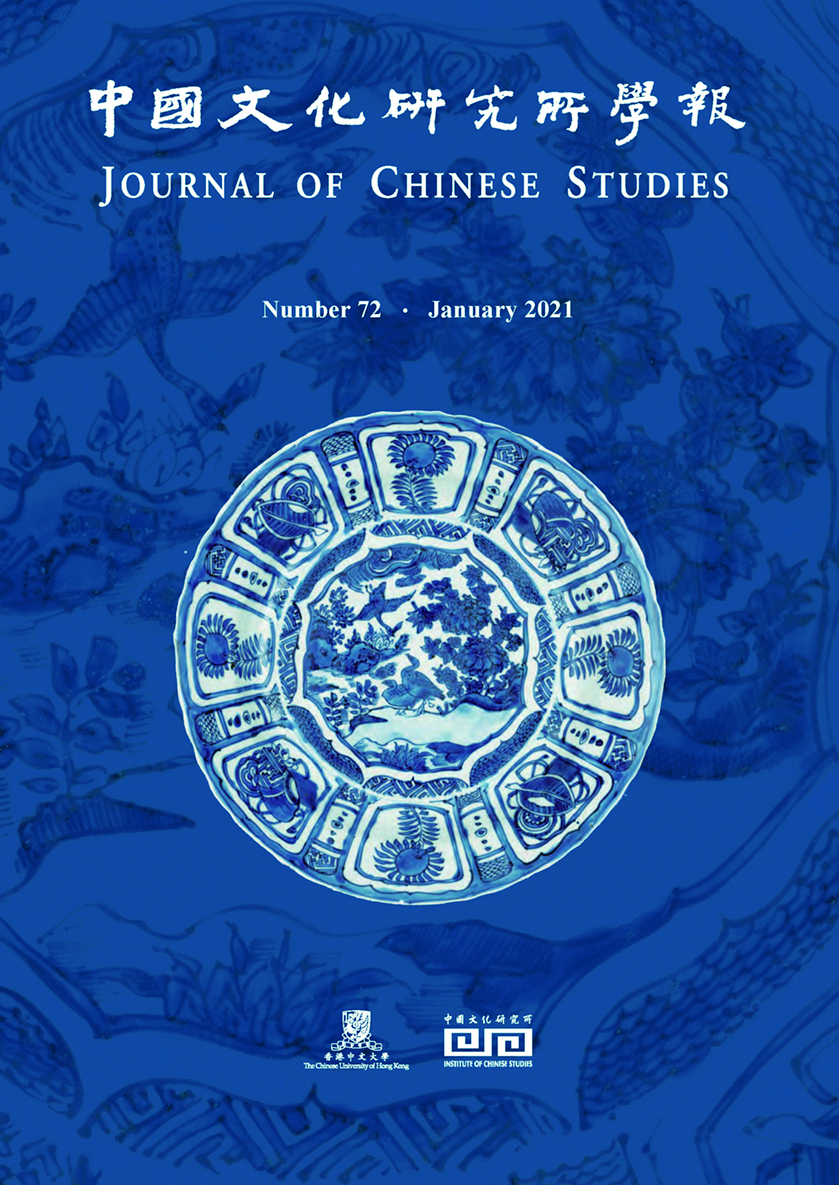
Number 72 (June 2021) of the Journal of Chinese Studies has just been published. It contains 6 articles, 1 review article, 6 book reviews and spans 259 pages.
Articles
- Timothy Wai Keung Chan, "A Levee on Mount Jade Capital: From Six-Dynasties Rituals of Pacing the Void to Early Tang Poetry on Roaming in Transcendence."
- Leung Shu Fung, "A Textual Study on Su Shi ’s Dongpo 'zhi lin'."
- Zhang Wanmin, "A Comparison Between Chinese and Japanese Reception of Zhu Xi’s Theory of 'Licentious Poetry' During Seventeenth and Eighteenth Centuries."
- Siu Chun Ho, "The Criticism of 'Tō’on' and Li Panlong’s Versification in Edo 'Kanshi' Circle."
- Tsai Chang-lin, "The Non-fundamentalist Commentary in the Qianlong and Jiaqing Eras: Yao Nai’s Views on 'Yi Shuo' in the Context of Confucian Classics."
- Chen Chien-Ming, "Poetic Dwelling: Qing Loyalist Poet Shen Zengzhi’s Final Years in Shanghai."
Review Article
- Grégoire Espesset, “Authorial Strategies in Pursuit of the Great Book: Ruminations about a Published Dissertation on Han China”
Book Reviews
- Michael Nylan, “Keywords in Chinese Culture. Edited by Wai-yee Li and Yuri Pines”
- Henrik H. Sørensen, “Chinese Esoteric Buddhism: Amoghavajra, the Ruling Elite, and the Emergence of a Tradition. By Geoffrey C. Goble”
- Linda Walton, “The Politics of Higher Education: The Imperial University in Northern Song China. By Chu Ming-kin”
- Tze-ki Hon, “The Yi River Commentary on the Book of Changes.By Cheng Yi. Edited and translated by L. Michael Harrington. Introduction by L. Michael Harrington and Robin R. Wang”
- Gil Raz, “The Writ of the Three Sovereigns: From Local Lore to Institutional Daoism. By Dominic Steavu”
- Patricia Eichenbaum Karetzky, “Becoming Guanyin: Artistic Devotion of Buddhist Women in Later Imperial China. By Yuhang Li”
For more details, please visit the Journal of Chinese Studies website:
http://www.cuhk.edu.hk/ics/journal/eng/journal.html
Twenty-First Century Bimonthly, Issue 183 (February 2021), Research Centre for Contemporary Chinese Culture
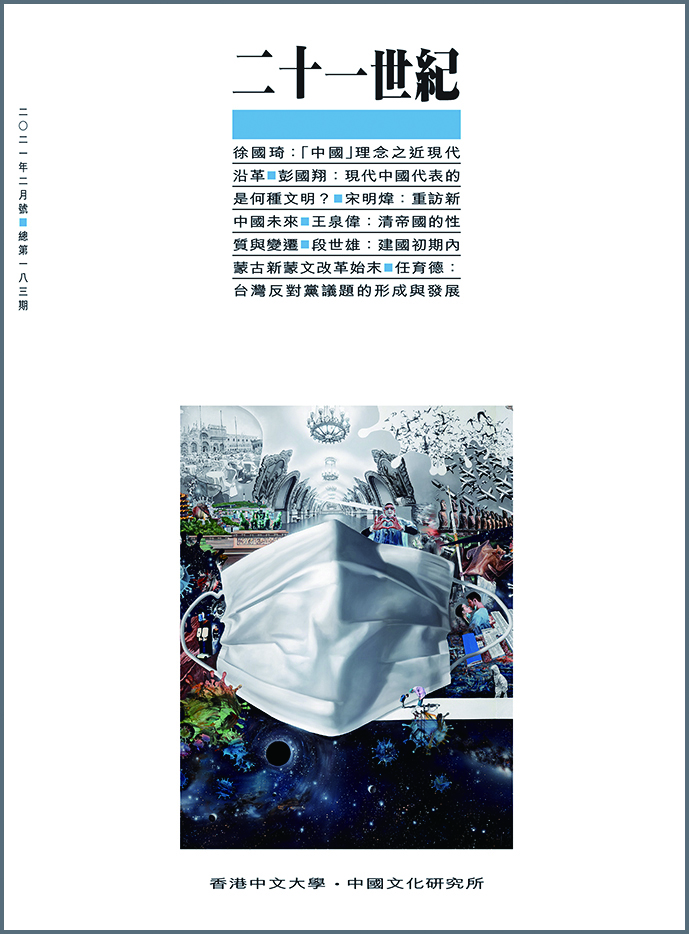
What is the realistic significance of the construction of “Cultural China”? The Twenty-First Century Review focuses on “Cultural China Reconsidered: Retrospect and Prospect”. Three articles discuss the topic from the perspective of history, civilization, and literature.
The Twenty-First Century Review
Cultural China Reconsidered: Retrospect and Prospect
Xu Guo-qi, "The Modern Evolutions a nd Significance of the Idea of 'China' and the Construction of 'Cultural China'."
Peng Guo-xiang, "What Civilization Does the People’s Republic of China Represent? Samuel P. Huntington’s 'The Clash of Civilizations' Reconsidered."
Song Ming-wei, "The Future of 'New China' Revisited: A Study in Twenty-First-Century Sinophone Fiction."
Research Articles
Wang Quan-wei, "Revisiting the Nature and Transition of the Qing Empire: The Perspective of Political Rights."
Zhang Meng-ting, "Frontier Education, Cultural Network, and the Expansion of State Power: A Case Study of Sipsongpanna in the Sino-Japanese War (1935-1945)."
Duan Shi-xiong, "The Origins and Consequences of the Mongolian Cyrillic Reform in Inner Mongolia during the Early Period of the People’s Republic of China."
Jen Yu-te, "The Formation and Development of the 'Opposition Party Issue' in 1950s’ Taiwan: An Analysis from the Cross-boundary Perspective."
View on the World
Zhong Biao, "Shaping the Invisible: The Journey of Artistic Creation in the COVID-19 Era."
Discourses and Peripatetic Notes
Hung Tak-wai, "Whoever Care about the Well-being of the People Shall be Deified: On the 'Separation of Church and State' Discourse in Chinese Academic Contexts."
Book Reviews
Ma Jin-sheng, "Using Event History Approach in Historical Research: A Review on Feng Zhi-yang, 'A Study on the Rescue of Refugees during the Boxer Rebellion (1900)'."
Ruan Qing-hua, "A Testing Ground of the Socialist State: A Review on Liu Yan-wen, 'Revolution, Collectivism, and Modernization in China: A Case Study of the Yintao Water
Conservancy Project in Gansu Province'."
For more details, please visit the Twenty-First Century Bimonthly website:
https://www.cuhk.edu.hk/ics/21c/en/issues/index.html
Twenty-First Century Bimonthly, Issue 184 (April 2021), Research Centre for Contemporary Chinese Culture
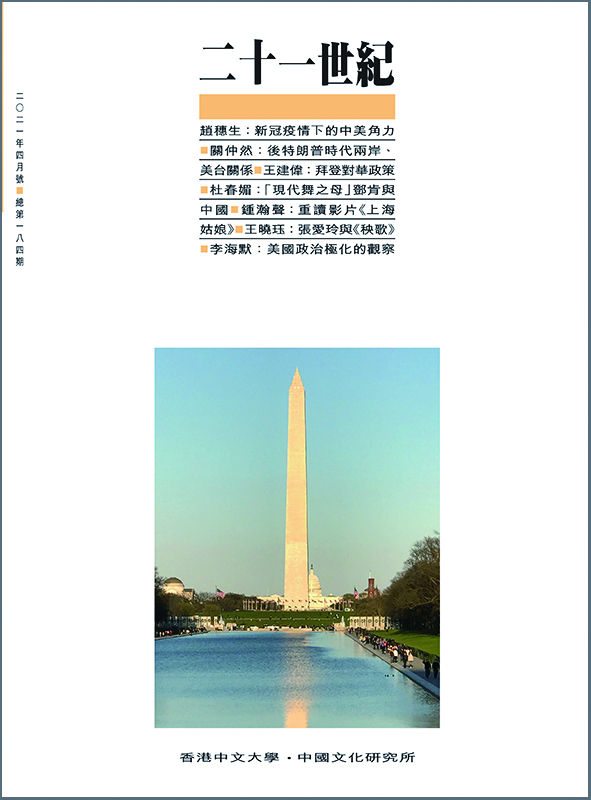
Twenty-First Century Bimonthly, Issue 184 (April 2021), Research Centre for Contemporary Chinese Culture Sino-American relationship is an important global issue. The Twenty- First Century Review presents the topic “The Future Prospect of Sino- American Relations” and invites three scholars to write on the future development.
The Twenty-First Century Review
The Future Prospect of Sino-American Relations
Zhao Sui-sheng, "Failed Global Leadership: The U.S.-China Rivalry during the COVID-19 Era."
Wang Jian-wei, "Joe Biden’s China Policy: 'Trumpism' without Donald J. Trump?"
Kwan Chung-yin, "The Changes in Cross-Strait and U.S.-Taiwan Relations: From the Trump Era to Post-Trump Era."
Research Articles
Du Chun-mei, "Freedom, Woman, and the Popular Body: Isadora Duncan in Twentieth-Century China."
Chen Ying, "Competing Images of Children on Screen: On 'The Little Angel and A Lamb Astray' during the Year of the Child in Republican China."
Zhong Han-sheng, "The Narrative of 'Anti-melodrama' and the Reform of Intellectuals’ Idea of Love: Rereading the Film 'Girls from Shanghai'."
Wang Xiao-jue, "Mapping Cold War Cultural Topography: Eileen Chang and 'The Rice-Sprout Song'."
View on the World
Huang Bi-he, "The National Art Museum of China and the Birth of Chinese Avant-garde Art."
Research Notes
Li Hai-mo, "Three New Perspectives on American Political Polarization."
Book Reviews
Wong Kit-wah, "Heritage of Modern Science in Western Civilization Reconsidered: A Review on Chen Fong-ching, 'Heritage and Betrayal: A Treatise on the Emergence of Modern Science in Western Civilization', revised edition."
Yin Peng-fei, "Seeking the Inner Logic of a 'Revolutionary' between the East and the West: A Review on Cheung Lik Kwan, 'Qu Qiubai and Transcultural Modernity'."
Li Zhi-yu, "The Significance of Biography in Historical Studies: A Review on Max Ko-wu Huang, 'Above and Apart: Gu Mengyu and His Search for an Alternative Path in Modern Chinese History'."
For more details, please visit the Twenty-First Century Bimonthly website:
https://www.cuhk.edu.hk/ics/21c/en/issues/index.html
Current Research in Chinese Linguistics (Volume 100 Number 1), T. T. Ng Chinese Language Research Centre

Current Research in Chinese Linguistics (Volume 100 Number 1) has been released. There are 7 articles in this issue with 6 articles covering the Special Topic: The 11th Cross-Strait Symposium on Modern Chinese Language and 1 article on Chinese Language Studies. The 11th Cross-Strait Symposium on Modern Chinese Language was held on 7-8 December 2018 at The Chinese University of Hong Kong (CUHK), which was jointly organized by CUHK, Nankai University, and the Institute of Linguistics, Chinese Academy of Social Sciences, jointly hosted by the Department of Chinese Language and Literature and T. T. Ng Chinese Language Research Centre, Institute of Chinese Studies, CUHK.
The theme of the Symposium was “Linguistics Study from the ‘Belt and Road’ Perspective”. The perspective from the Belt and Road Initiative opens a new horizon in the study of linguistics and its application, which plays an important role not only in deepening our understanding of Chinese in the global context, but also in facilitating the enhancement of comparative linguistics to support and further promote cultural exchanges, paving the way to foster people-to-people bonds. More than 90 experts and scholars shared their research in the study of linguistics from the “Belt and Road” perspective.
Special Topic: The 11th Cross-Strait Symposium on Modern Chinese LanguageSiulam Tin, "The Third Discussion on the Problems of Language and Characters in Hong Kong (in Chinese)." Doreen Wu and Minfen Lin, "Relational Acts & Interactive Features by Chinese Celebrities on Social Media: A Comparison of the Chinese Mainland and Hong Kong (in Chinese)." Ling Zhang, "Acoustic Analyses of Putonghua Tone Errors by Hong Kong Speakers (in Chinese)." Hongli Shi, "The Syntactic Positions and Semantics of Non-interrogative Wh-items in Mandarin Chinese (in Chinese)." Yik-Po Lai, "A Diachronic Typological Study of Equative Constructions in Cantonese (in Chinese)." Yiqin Qiu, Xiaoqian Zhang and Xiaoshi Hu, "On Post-verbal Durative/ Frequency Phrases in Mandarin Chinese."
Chinese Language StudiesYanting Liu, "On the 'Ren'(人)-X Construction in Dongguan (Qishi) Cantonese (in Chinese)."
PDF copies of these articles can be downloaded freely via http://www.cuhk.edu.hk/ics/clrc/
Companion to the Essentials of the Daoist Canon
Edited by Lai Chi Tim
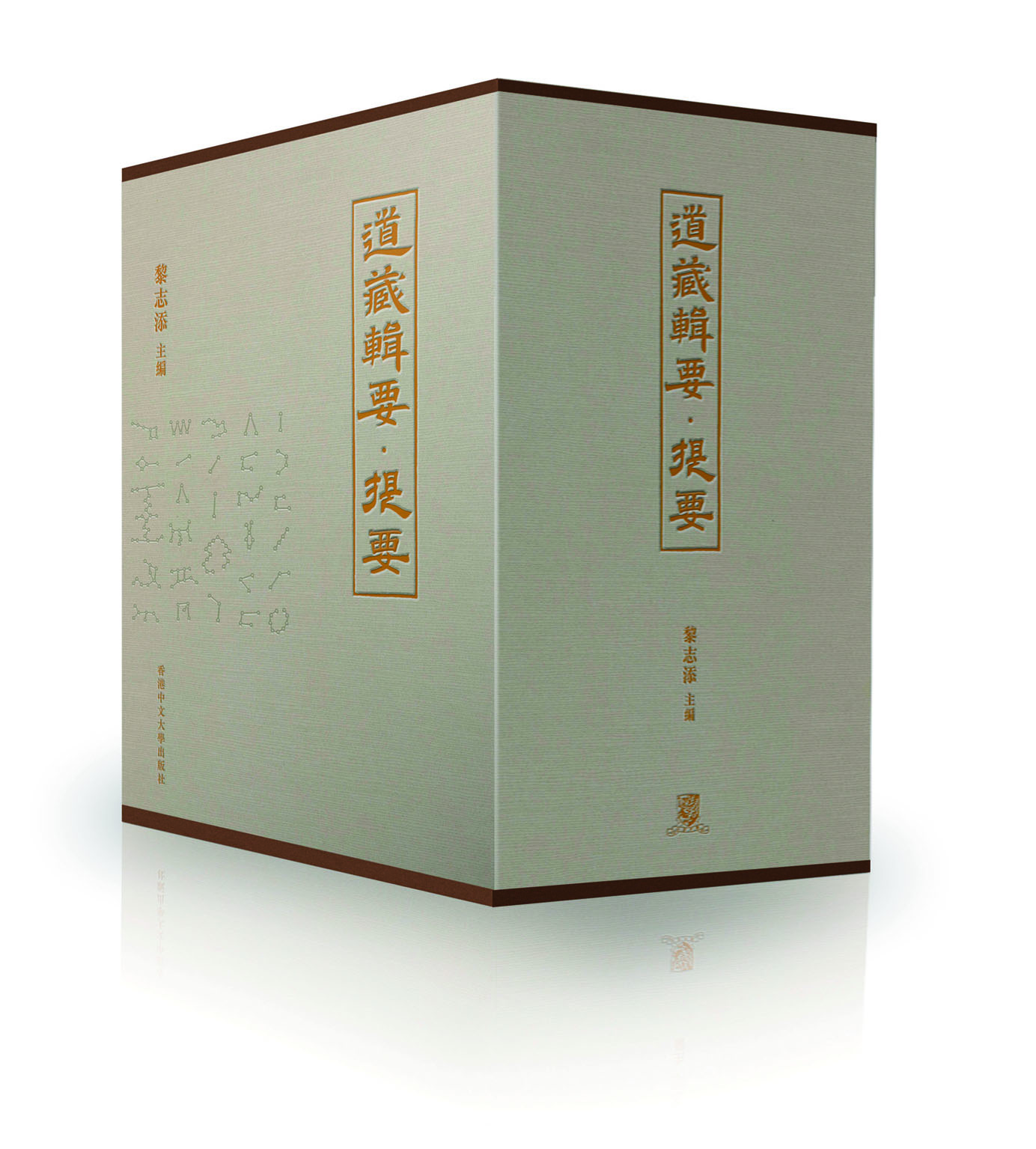
The Daozang Jiyao (道藏輯要) [the Essentials of the Daoist Canon is the fundamental Daoist anthology of the Qing dynasty (1644–1912), which has been the object of an international research project since 2006, involving a team of 74 highly qualified Daoist scholars from various institutions all over the world. The results of this research– The Companion to the Essentials of the Daoist Canon, is presented in the form of 307 articles compiled into a threevolume work and published in May 2021. The Companion to the Essentials of the Daoist Canon, as the title of this collection suggests, is considered to represent the quintessence of the Ming Daoist Canon ( Zhengtong Daozang (正統道藏)) of 1445. The contents cover a wide range of topics from commentaries to Daoist and Neo-Confucian classics, inner alchemy, litanies, monastic and lay liturgy, moral instructions, epigraphy and much else. In spite of its importance no companion has yet been produced. The publication of The Companion to the Essentials of the Daoist Canon will not only contribute to a better understanding of Chinese Religion of the Qing period but will also shed lights on the philosophical, spiritual, and intellectual construction of China during the phase of transformation into its current situation. This book will undoubtedly become one of the references in the academic departments of Chinese studies, religion studies, history, and other humanity studies. Furthermore, as Daoism is making its way outside of academic circles, it is expected that more and more general readers looking for reliable materials on Daoism will want to add such a compilation into their library.
The Rise of Lord Zhuang of Zheng: First Ten Chapters of Chronicles of the Eastern Zhou Kingdoms , Research Centre for Translation
By Feng Menglong
Translated by Erik Honobe
With a foreword by Robert E. Hegel 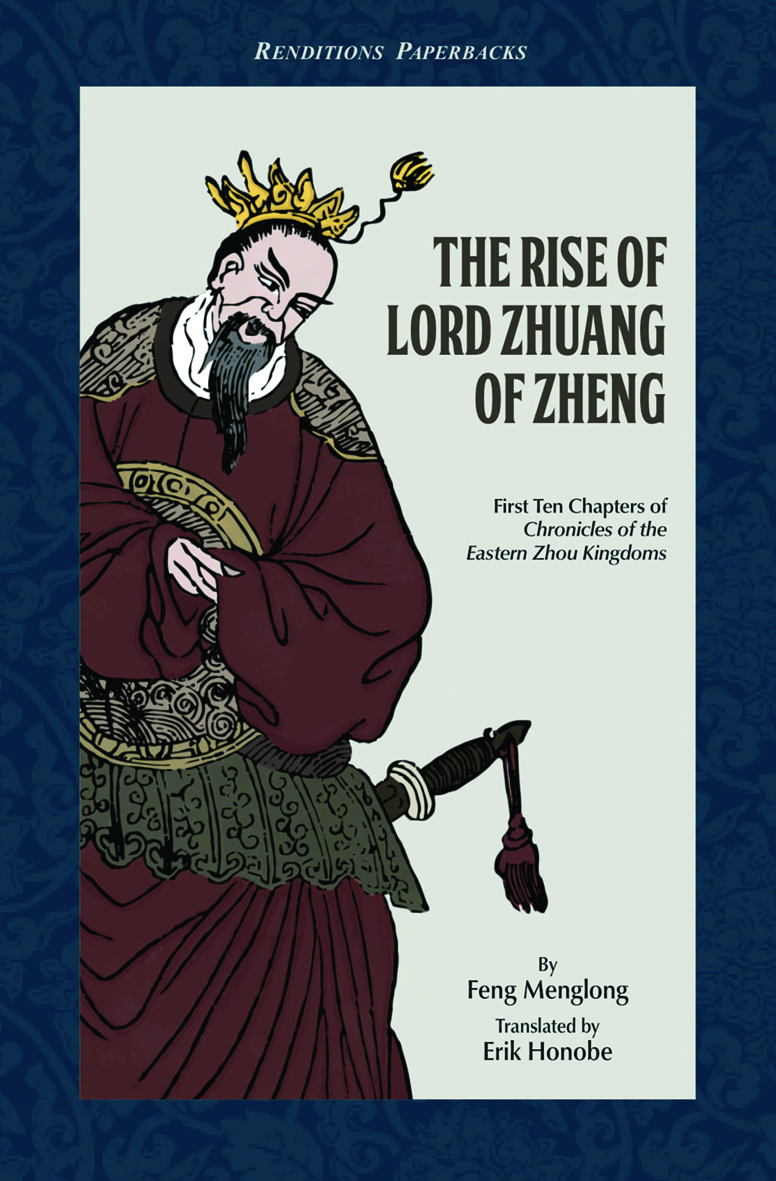 This volume consists of the first ten chapters from the popular historical novel Dongzhou lieguo zhi (東周列國志), or Chronicles of the Eastern Zhou Kingdoms, by the renowned late Ming dynasty writer Feng Menglong (馮夢龍). The stories, themselves adaptations of earlier texts, vividly recount the end of the Western Zhou and the rise of the cunning, ambitious Lord Zhuang of Zheng, the first overlord to have seized overarching power during the breakdown of order. Wise or fatuous rulers, loyal or renegade ministers, ill-fated beauties, and valiant generals take turns appearing on the stage of that chaotic yet thrilling era, their lives interwoven into this romanticized history which has been widely read for hundreds of years and will continue to attract future generations of readers.
Feng was a widely acclaimed compiler of anthologies of popular literature. His work includes collections of jokes, collections of classical-language stories and anecdotes, revised versions of novels, and the San yan (三言) collections of vernacular stories.
Erik Honobe, the translator, is Professor in the School of Global Studies at Tama University, Japan, where he teaches Chinese Literature and International Business.
Studies of Early Chinese Philosophy: From Laozi and Zhuangzi to Huainanzi and Wenzi, Research Centre for Contemporary Chinese Culture
By Dr Cheng Lai Kuen
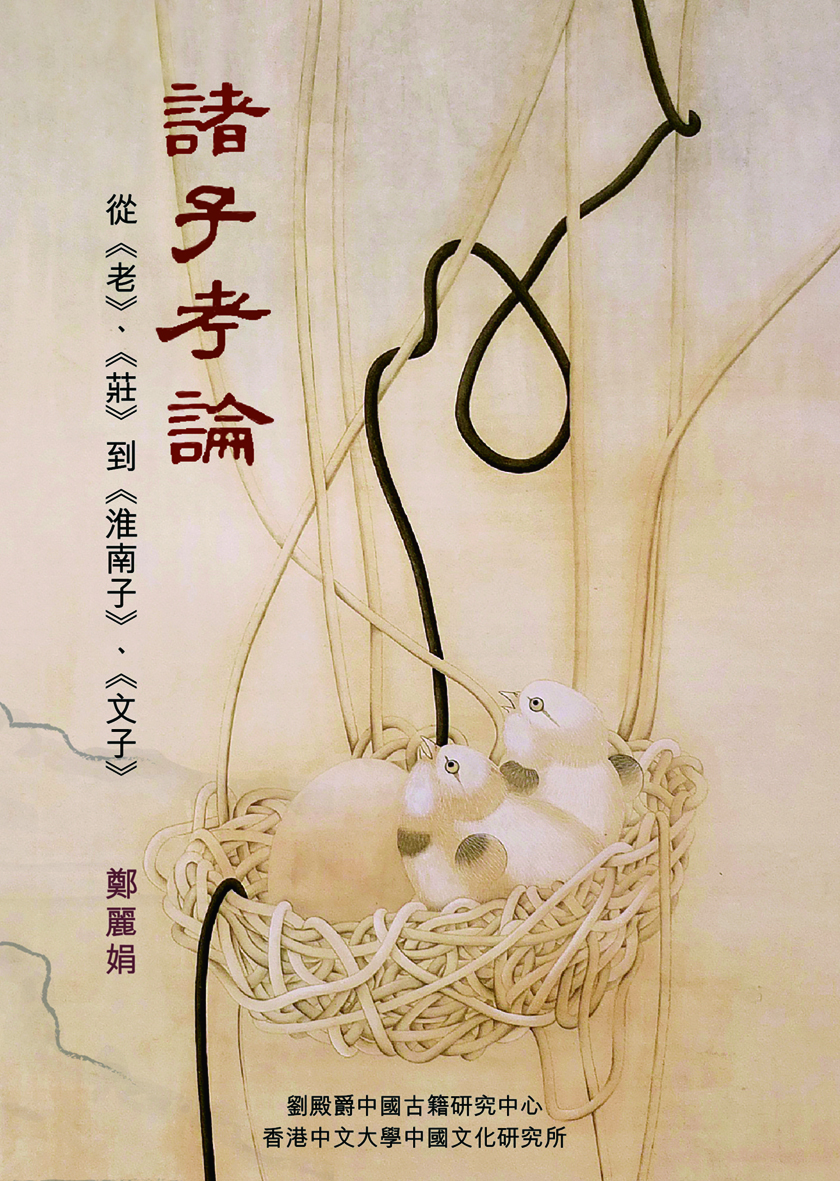
Studies of Early Chinese Philosophy: From Laozi and Zhuangzi to Huainanzi and Wenzi by Dr Cheng Lai Kuen was published by the D. C. Lau Research Centre for Chinese Ancient Texts in December 2020. This volume is the 49th title of The CHANT Series. The book consists of six chapters each of which is a self-contained essay on the relationship between ancient Chinese philosophers. The first five chapters explore the underlying relations of Laozi, Zhuangzi, Xunzi, Huainanzi, and Wenzi, and analyse their difference. In the Appendix is an essay examining how the philosophical works of Zheng Xuan and Wang Su influenced the ritual classics of the Northern Dynasties by comparing the annotations of Zheng Xuan, Wang Su, and Lu Bian.
Transcending Transience: Art and Culture of Late-Ming Jiangnan, Art Museum
Project Director: James C. Y. Watt
Curators and Editors: Maggie C. K. Wan & Jiang Fangting
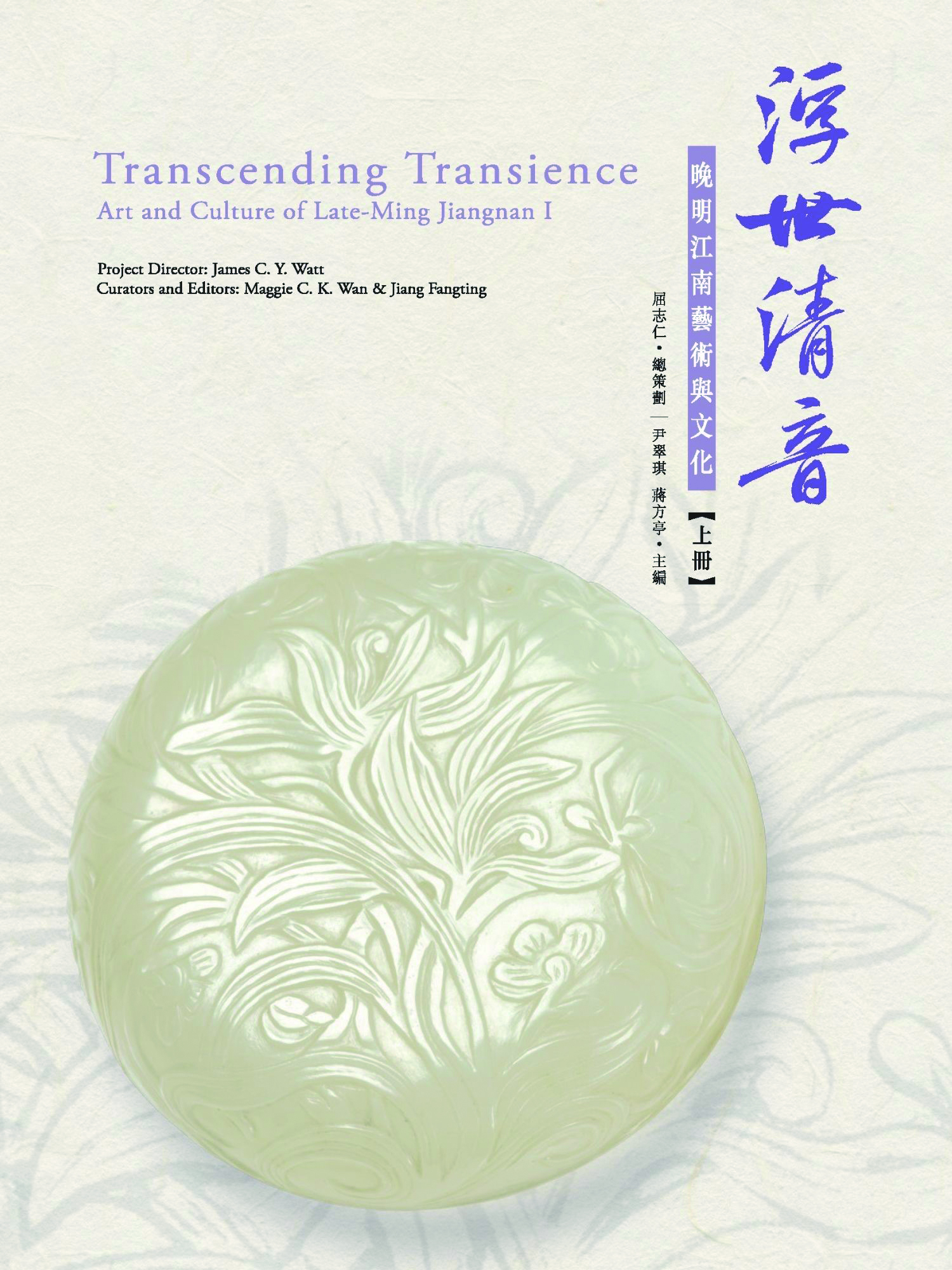 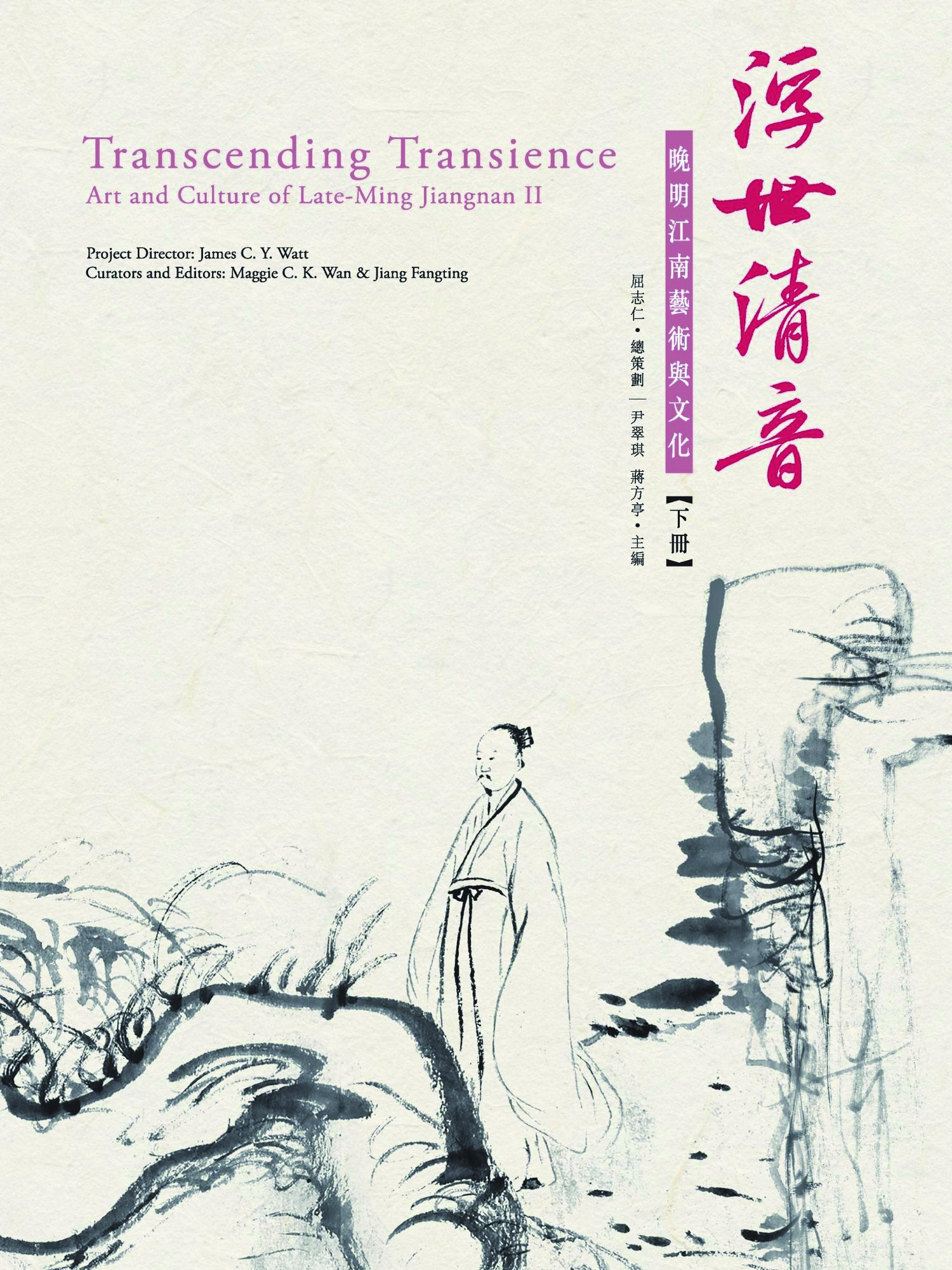 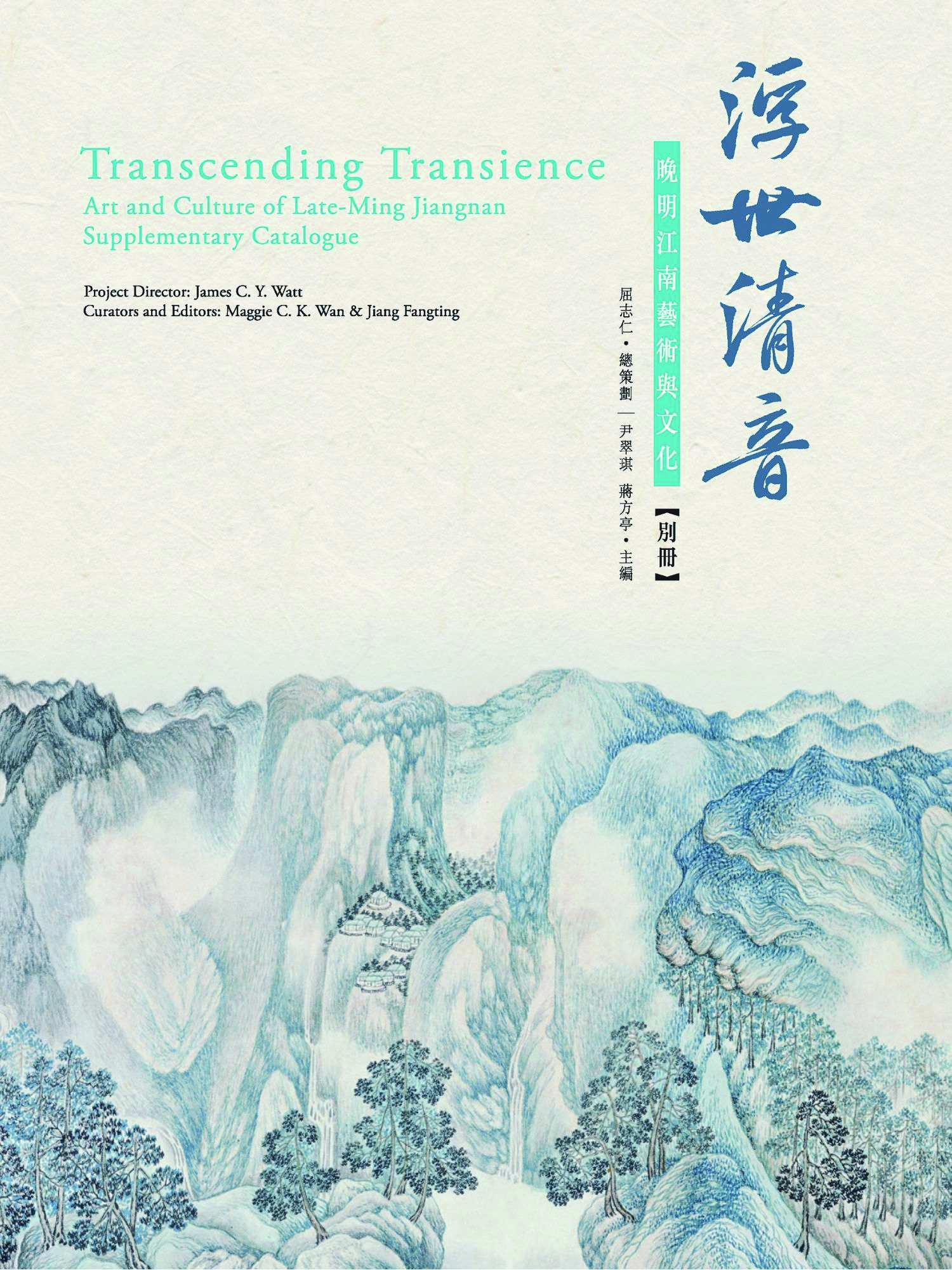
A three-volume catalogue featuring three essays and 200 sets of objects from the Shanghai Museum, public and private collections in Hong Kong, and overseas museums to illustrate the artistically and culturally vibrant period of late Ming.
Essays
Maggie C. K. Wan, "Prosperity for the Talking: Life of the Middle Class in Late-Ming Jiangnan Cities."
Jiang Fangting, "Transcending Transience: Divergence and Convergence as Seen in Late-Ming Humanistic Art."
Wang Guanyu, "Prosperity Factorized: Late-Ming Jiangnan in the Early Phase of Globalization."
Catalogue Entries I–V
Artistic Confluence in Guangdong: Selected Painting and Calligraphy from Ming to Mid-Qing China (Collection of the Art Museum, The Chinese University of Hong Kong)
Written and compiled by Dr Peggy Pik-ki Ho
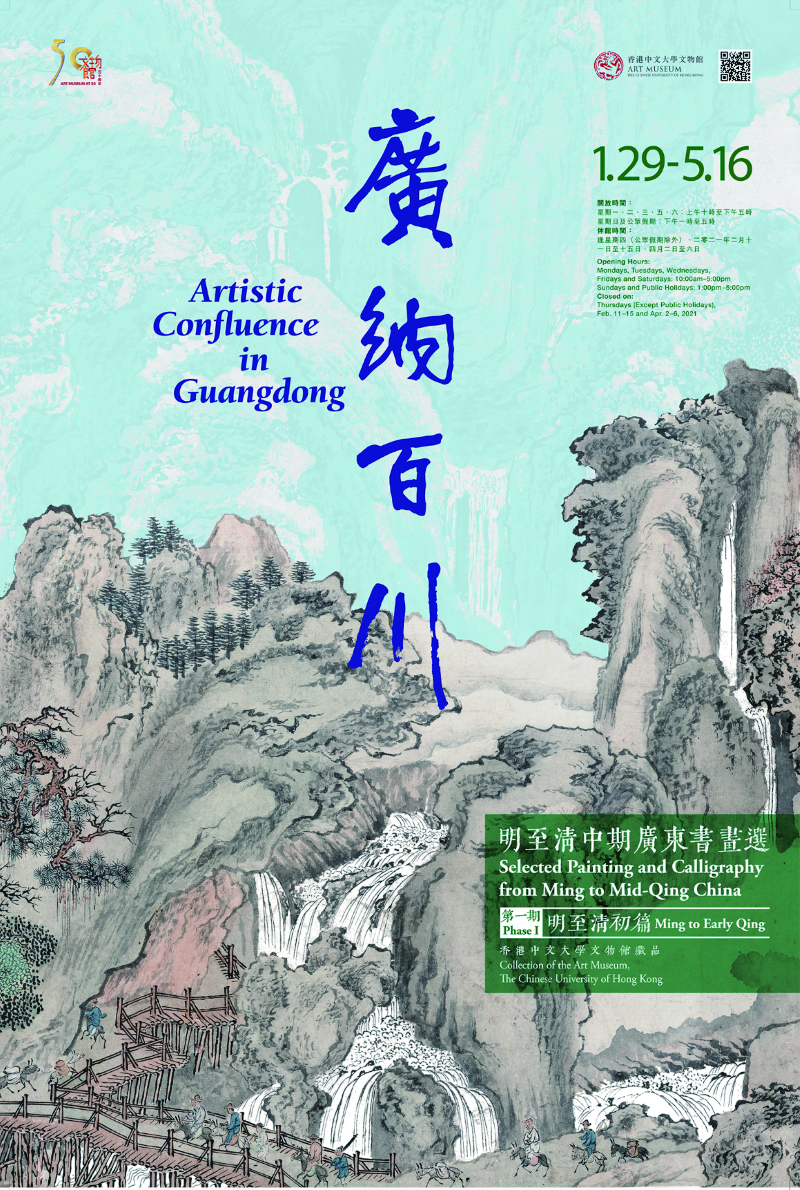
Written and compiled by Dr Peggy Pik-ki Ho of the Art Museum of CUHK, this publication is a journey of retrospection and reconstruction of Guangdong painting and calligraphy from CUHK’s collection with in-depth and original research. It leads the readers to delve into the mindset of Guangdong cultural elites in relation to arts, culture, and history. On the occasion of celebrating the Golden Jubilee of the Art Museum, we hereby commemorate the unparalleled efforts and enthusiasm of these pioneers in their quest for applying their learned knowledge of statecraft to practical affairs and contributing to the nation’s intellectual legacy. IntroductionThe Lingnan Story: A New Understanding of Lingnan through Literature and Cultural Relics. Chapter 1Subtlety and Silence have Merits: Calligraphy under the Influence of Chen Xianzhang and Zhan Ruoshui. Chapter 2The Reluctant Choice of Shunning from the World: The Dilemmas of Ming Loyalists, Monks, and Qing Officials. Chapter 3The Century of Arts and Culture: Poets, Painters, and Calligraphers all Leading the Trend. Chapter 4The Sweeping Wind and the Elegant Bamboo: The Culture of Collecting and Elegant Gathering of Scholars and Merchants.
|























